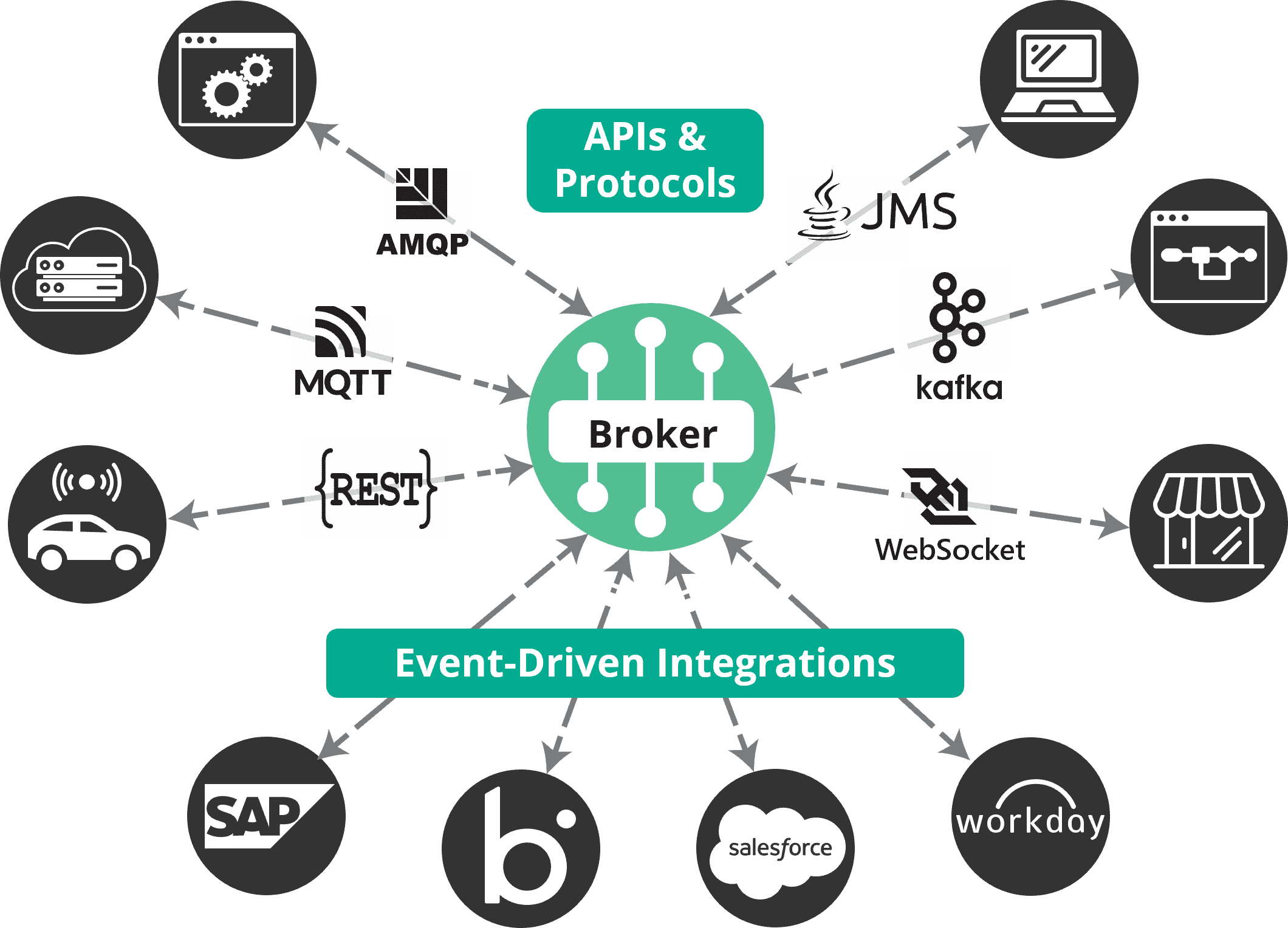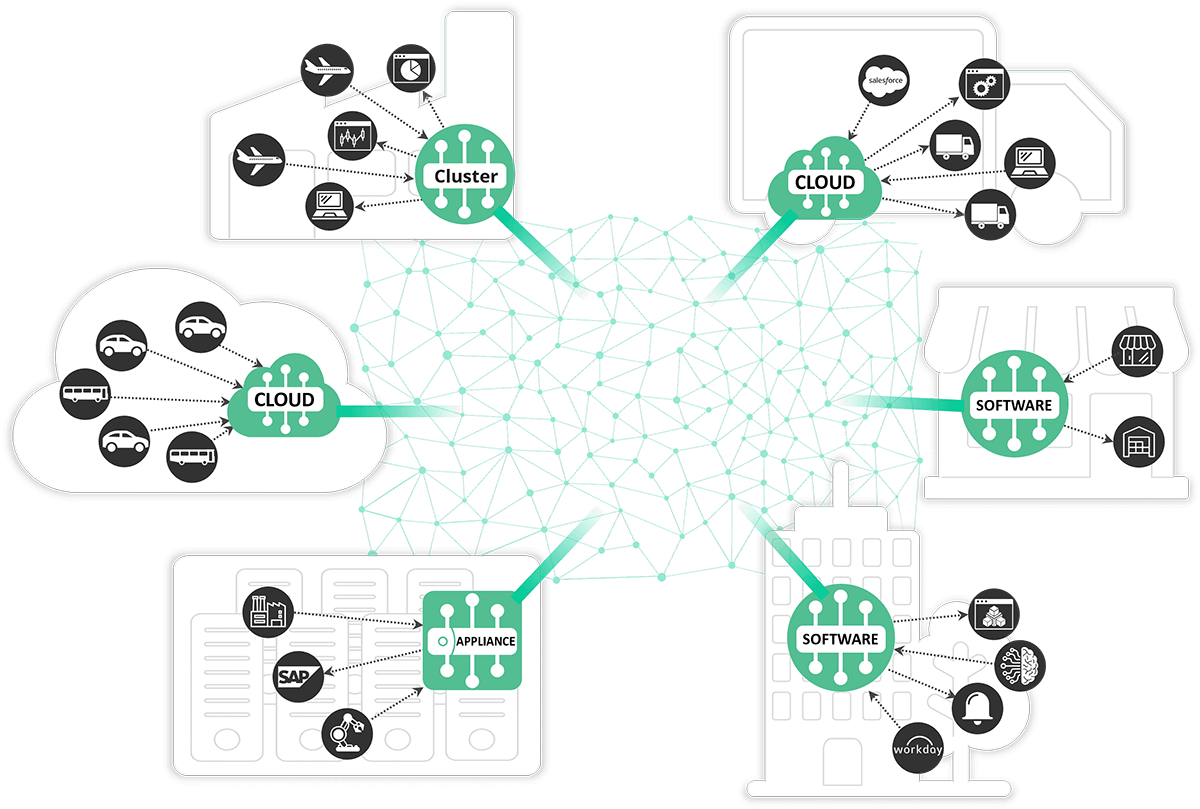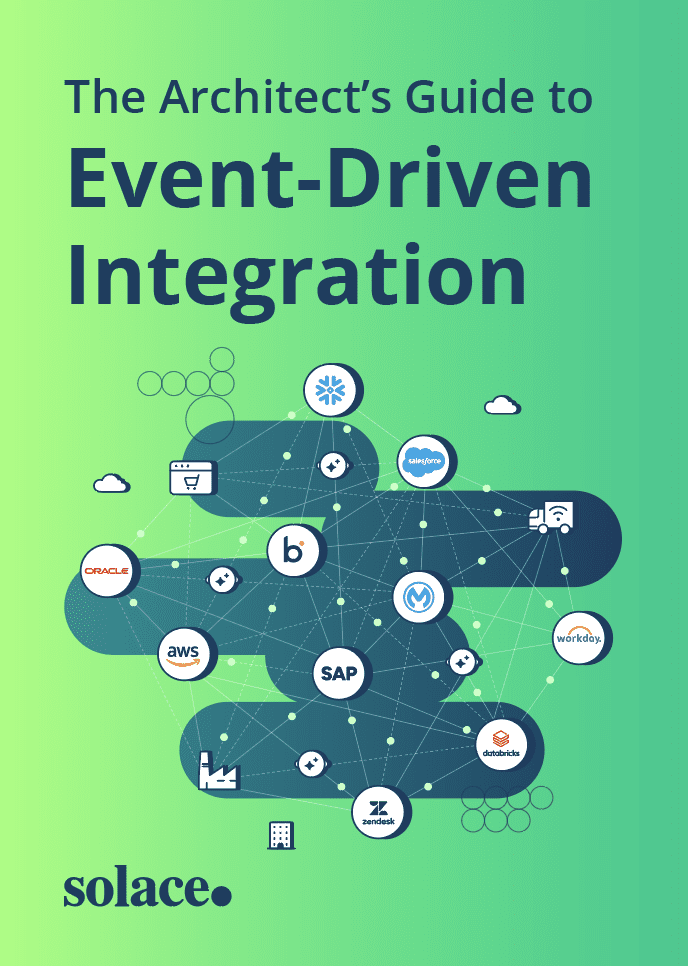Explore how modern trends are changing the integration game, and how to ensure that new integration architectures can withstand the impact of these changes.
Benefits of Event-Driven Integration
Event-driven integration turns conventional integration architecture inside-out — from a centralized system with connectivity and transformation in the middle to a distributed event-driven approach, whereby integration occurs at the edge of an event-driven core.
- Extend the valuable life of legacy applications by boosting their speed, scalability and reliability with the ability to send and receive information in real-time.
- Accelerate innovation by making it easy to incorporate new applications, cloud services and IoT devices into existing business processes.
- Simplify your growing system by replacing point-to-point integration that relies on synchronous communications with more flexible asynchronous and one-to-many interactions.
How It Works
Event-driven integration entails capturing changes that occur anywhere in your business as “events,” letting apps and devices publish information about those events via micro-integrations, and getting that information everywhere it needs to be via an event mesh.
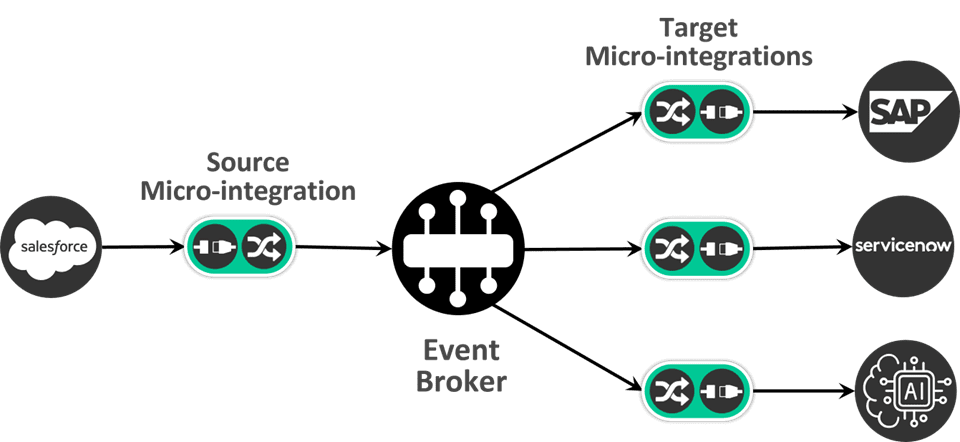
Key Attributes of Event-Driven Integration
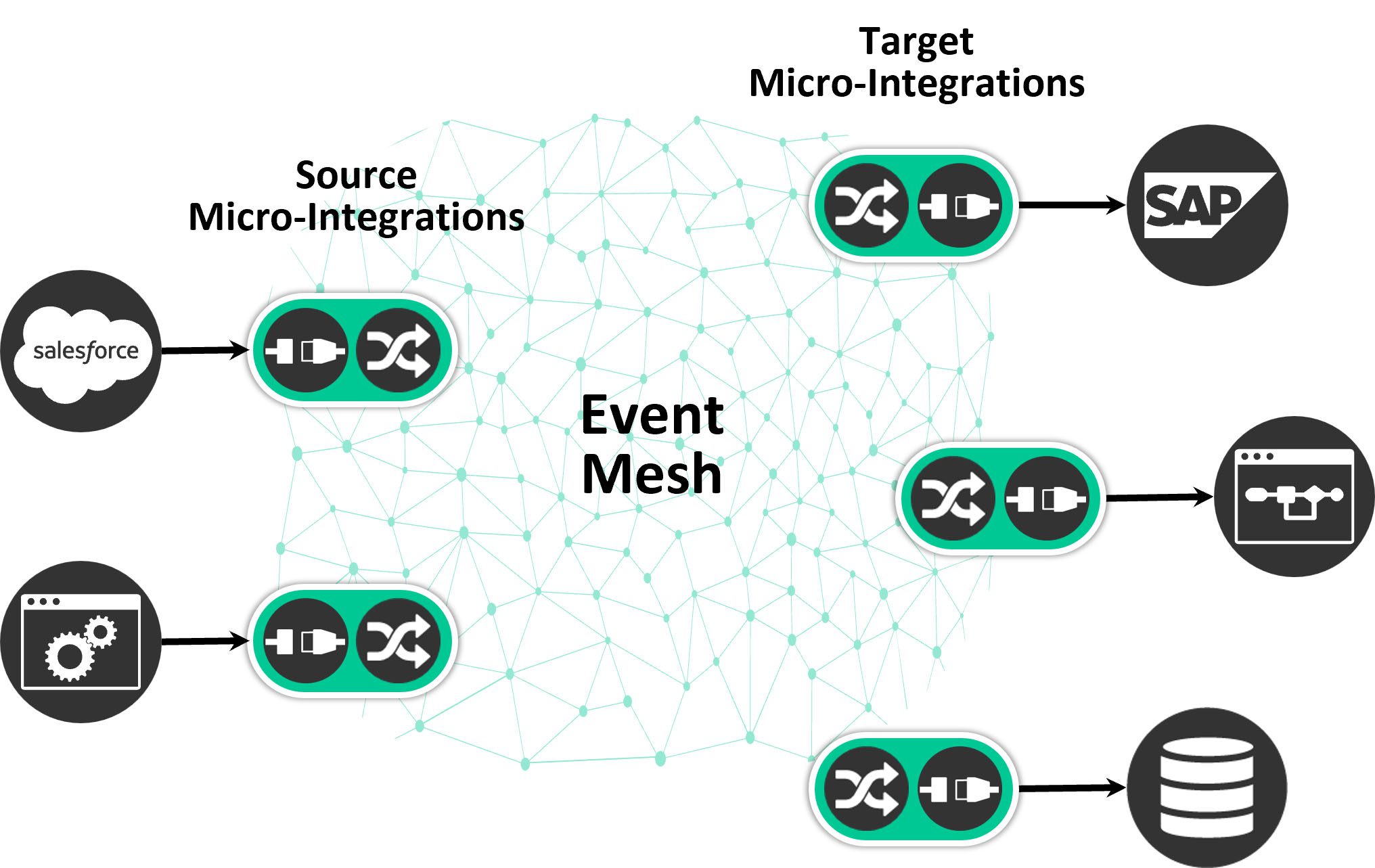
Micro-Integrations Plug-and-Play Access to Real-Time Data
Micro-integrations for leading applications and integration technologies make it easy to tie together the technologies you use across lines of business and use cases.
Learn about our micro-integrations
Check out our Integration Hub
Open Connectivity Integrate Your Stuff, Your Way
Support for your favorite protocols and APIs lets you connect to and translate data from legacy applications, IoT devices, and cloud services using their language of choice.
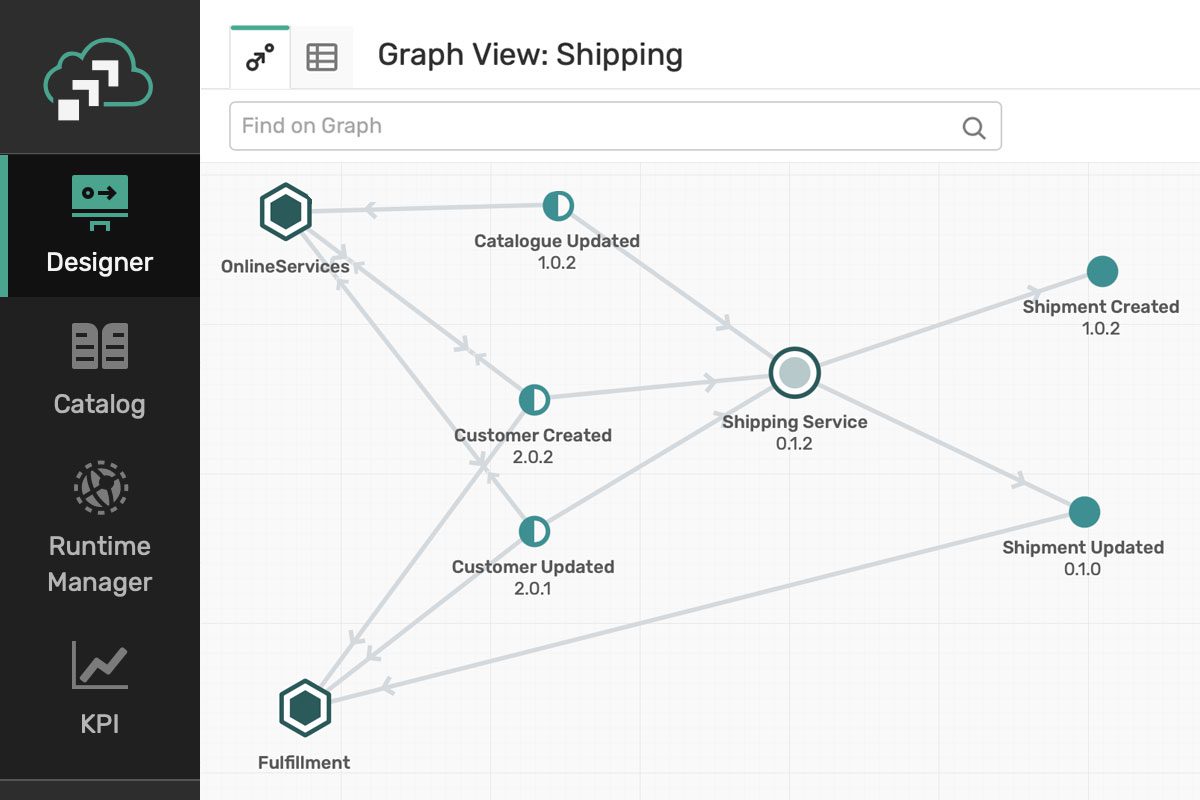
Event Portal Collaborate and Govern Your Assets
An event portal makes it easy to collaboratively create and manage the events and event flows that enable real-time, event-driven interactions between systems. It also lets you ensure consistency with design intent, and compliance with both corporate policies and regulatory requirements.
Event Mesh Make Data Accessible Everywhere
An interconnected network of event brokers called an event mesh lets you dynamically distribute data across your enterprise and around the world no matter what – even in the face of network failures, natural disasters and application issues.
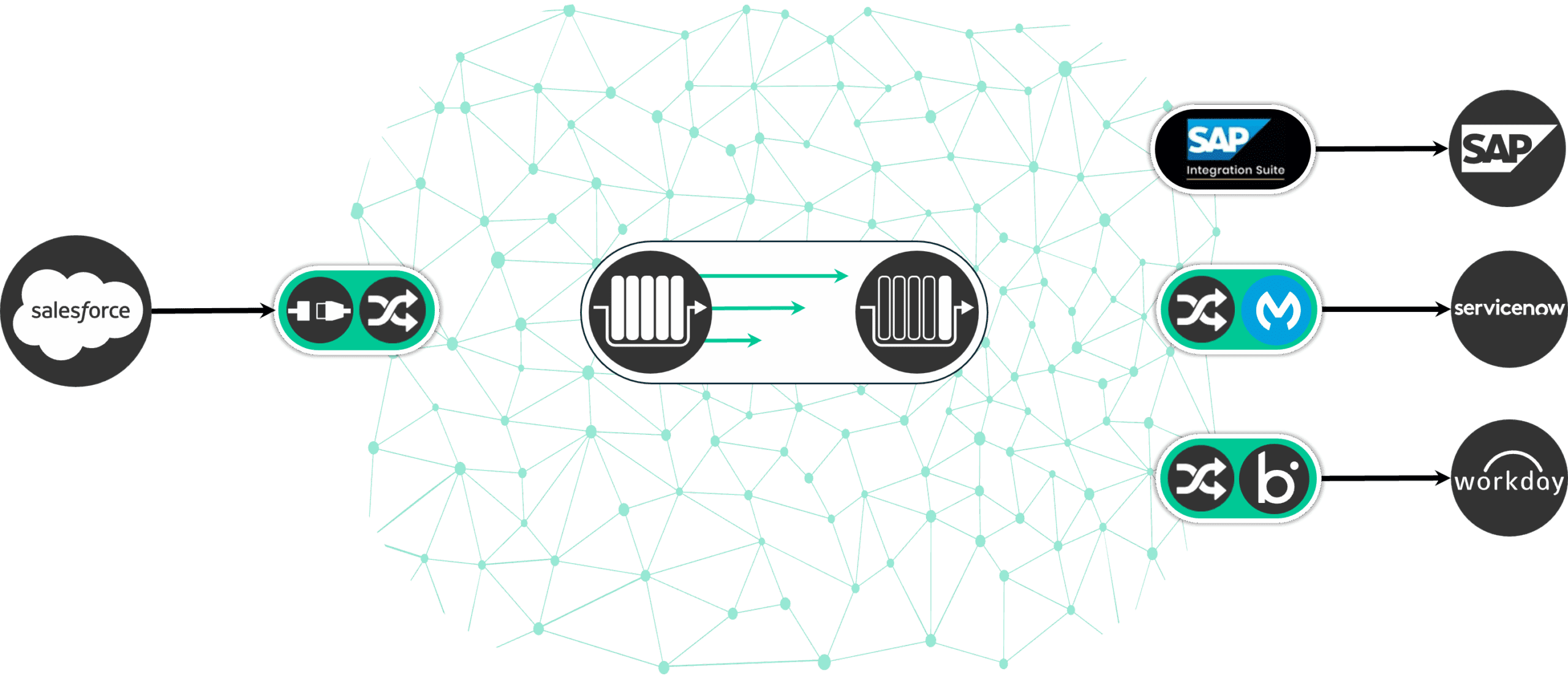
Shock Absorption Buffer for Burst Handling
Event brokers temporarily store messages to a queue or topic until your iPaaS is ready to process them, or downstream applications can receive them, so they aren’t overwhelmed by spikes in traffic.
Learn how event-driven integration provides shock absorption
Successful Applications of Event-Driven Integration
The Architect’s Guide to
Event-Driven Integration
This paper covers the decline of ESBs and centralized integration; how increasingly decentralized and heterogenous runtimes (cloud, edge and on-premises) have caused businesses to have many integration tools; why so many businesses struggle to provide real-time customer experiences; and why we need a new way of thinking about the problem.


